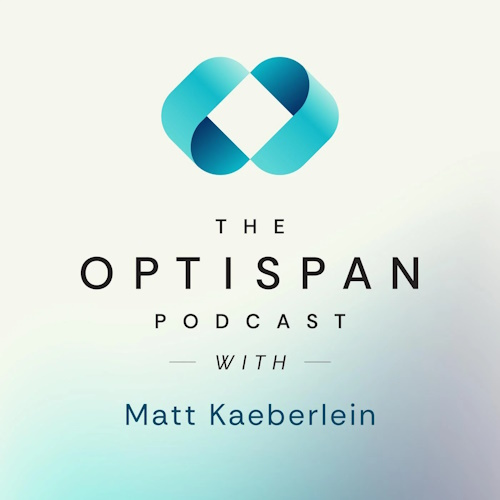I Took 4 Different Biological Age Tests & Compared the Results
Matt explores the rising popularity of direct-to-consumer biological age testing kits
In this episode of the Optispan podcast, Matt takes a deep dive into the rising trend of direct-to-consumer biological (epigenetic) age testing kits. He delves into their purpose, growing popularity, and potential limitations, while sharing his experimental approach to assess their accuracy and reliability. Matt unpacks the distinction between biological and chronological age, examines the co-marketing strategies used by these companies, and reflects on his own test results, offering a critical perspective on the true value of these kits.
Key Points:
This episode explores the reliability of direct-to-consumer epigenetic age tests, highlighting significant issues with accuracy, precision, and transparency. With concerns about conflicts of interest, particularly from companies co-marketing supplements, Matt advises focusing on established health pillars like diet and exercise over unregulated tests.
- Epigenetic Age Tests and Skepticism: The podcast examines epigenetic age tests sold directly to consumers, questioning whether they can accurately measure biological age. It highlights the lack of robust evidence and regulatory oversight in this industry. The host emphasizes the importance of critically assessing claims made by these companies.
- The Experiment and Findings: The host conducted a personal experiment using eight test kits from four different companies, collecting samples on the same day. Results showed wide variability in biological age predictions, ranging from 43 to 61 years—casting doubt on the precision and reliability of these tests.
- Understanding Biological Age: Biological age refers to how well the body’s tissues and organs function compared to chronological age. The podcast explains that while epigenetic markers like DNA methylation are correlated with ageing, they represent only a fraction of the complex biological ageing process, making these tests inherently limited.
- Conflicts of Interest in the Industry: Many companies selling these tests also market supplements, using test results to promote their products. This raises concerns about credibility and profit-driven motivations, particularly when there is little evidence supporting the effectiveness of their recommendations.
- Accuracy, Precision, and Transparency: The experiment revealed issues with accuracy (closeness to the true biological age) and precision (consistency of results across tests). The lack of regulatory standards or transparency in quality control further undermines trust in these tests.
- Practical Recommendations: The episode advises consumers to focus on proven health practices—like balanced nutrition, regular exercise, quality sleep, and social connections—rather than unregulated tests. While epigenetic clocks may hold promise as research tools, they are not yet reliable for individual health assessments.
Visit website: https://www.youtube.com/watch?v=NnWpkwUgCjs
See alsoDetails last updated 28-Nov-2024



